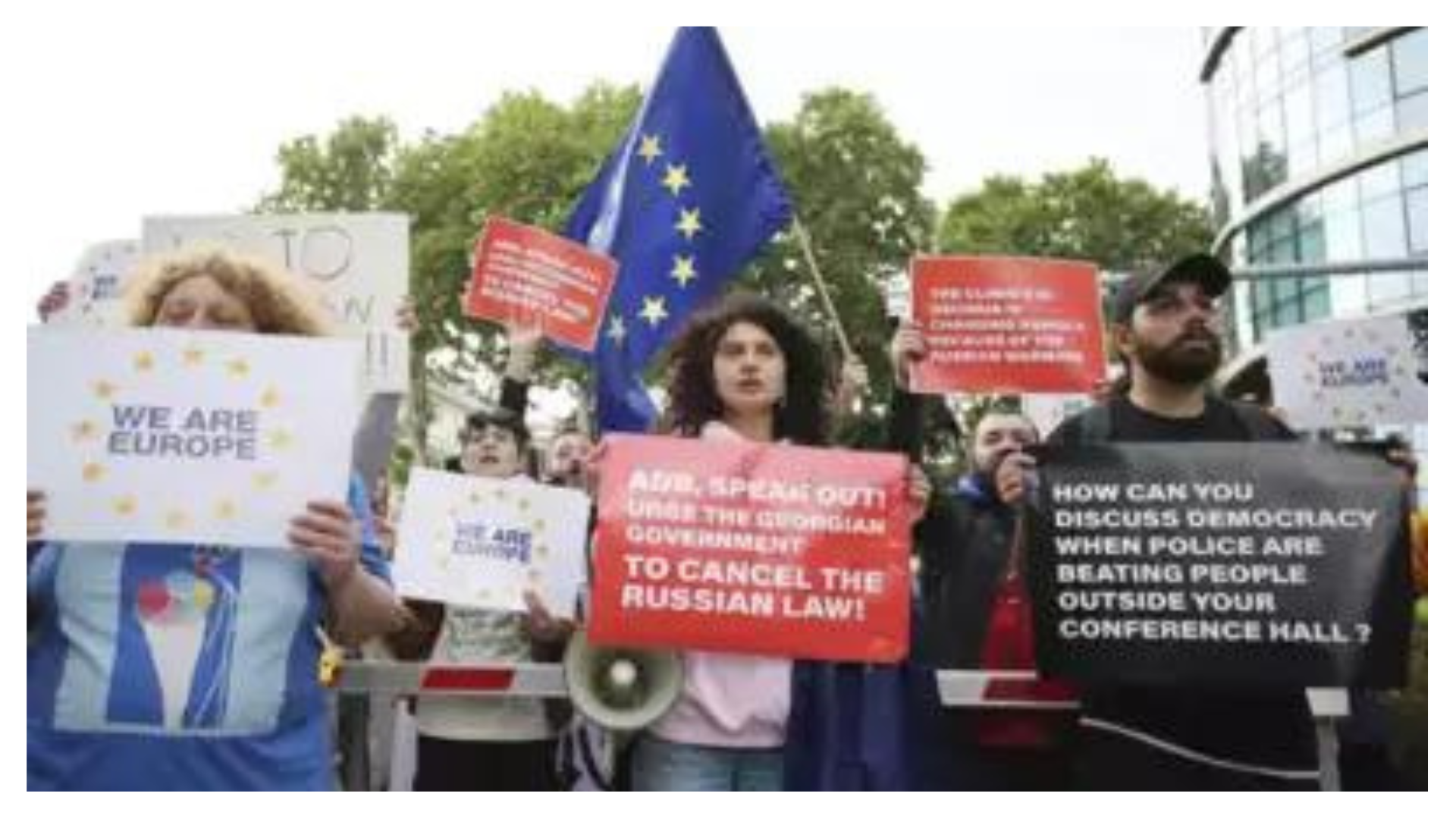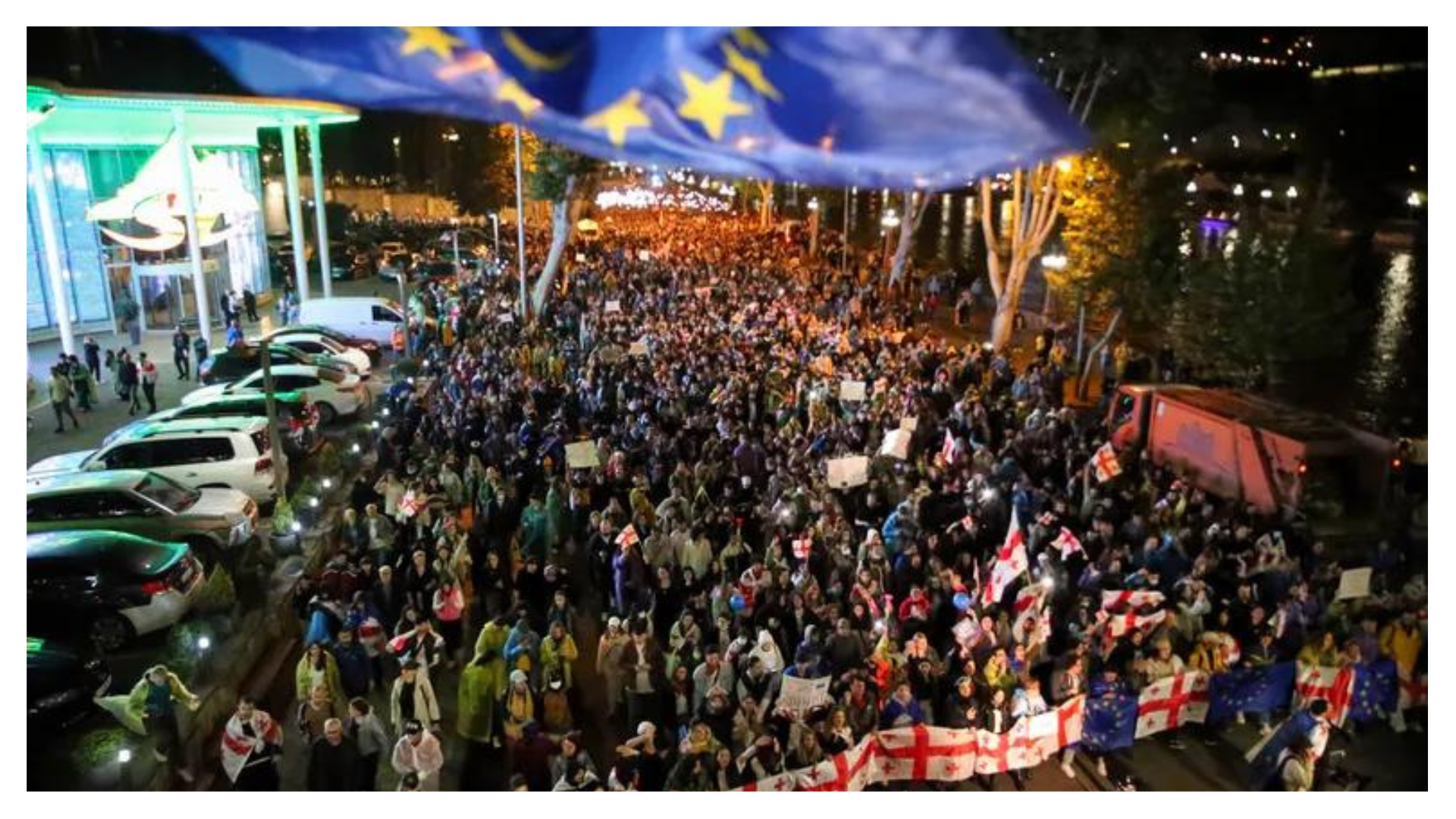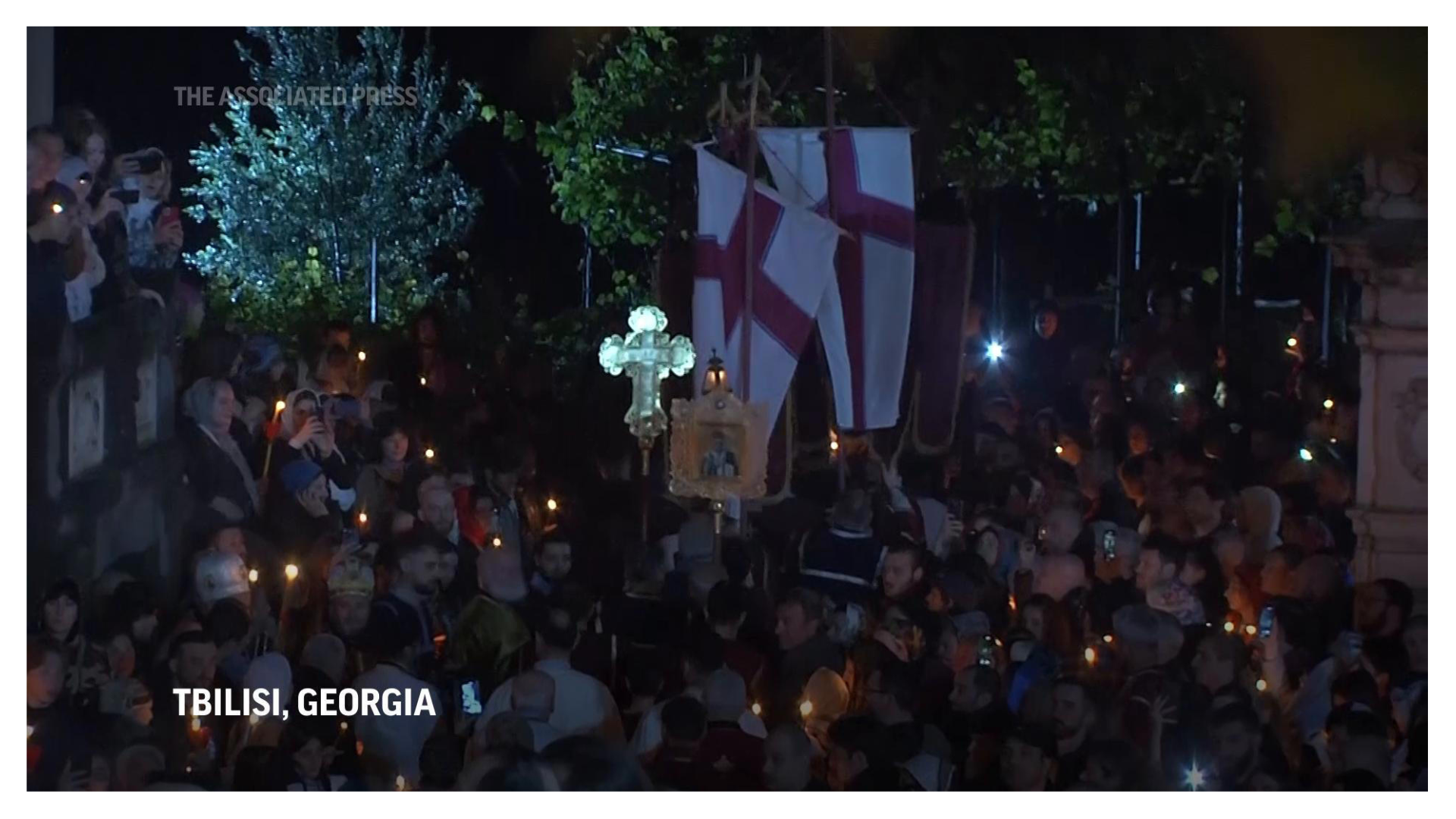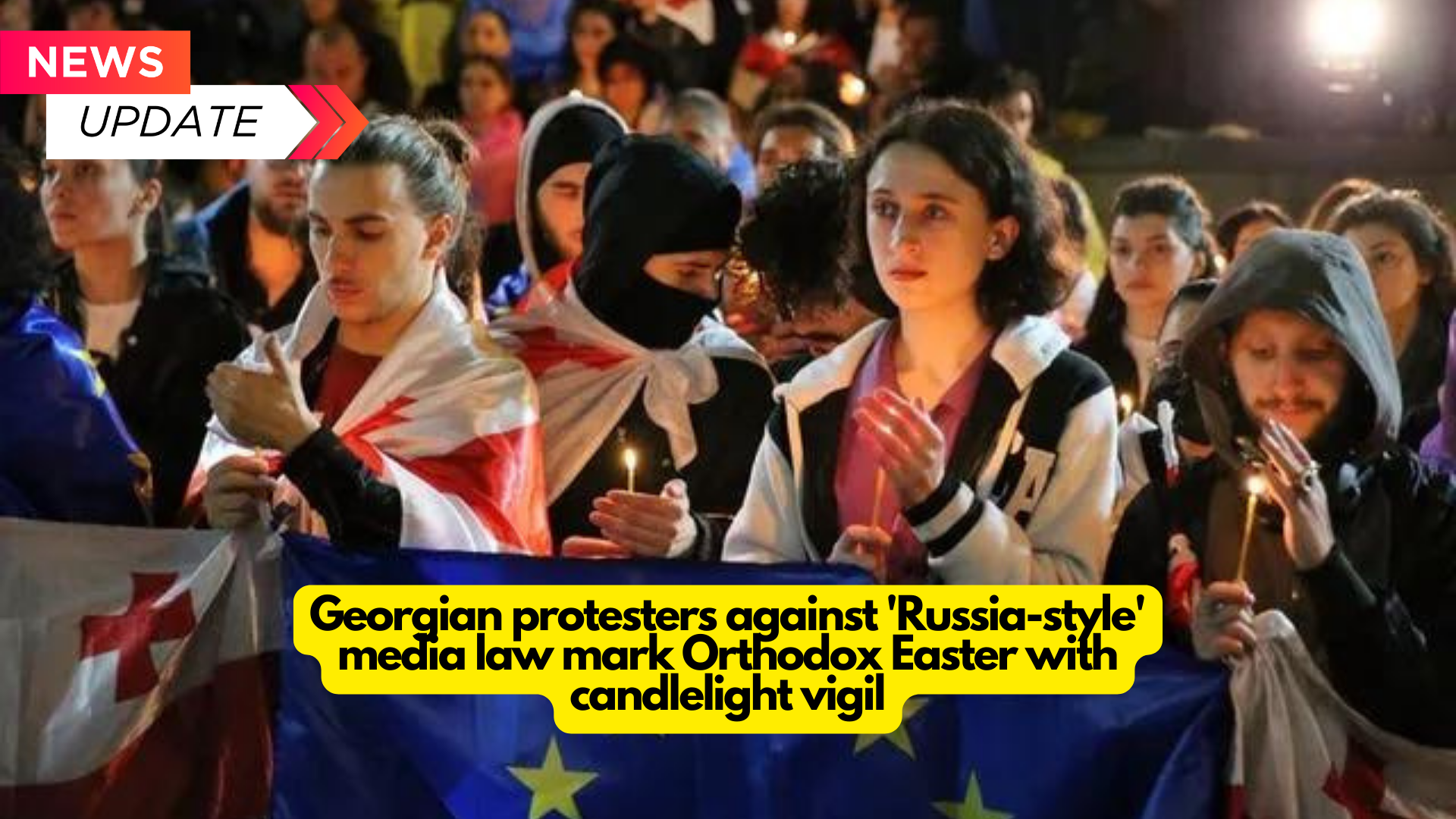Georgians protested a bill during Orthodox Easter against media freedom threats and EU aspirations.
Critics fear Moscow’s influence is impacting Georgia’s EU path. Tensions between Georgia and Russia persist, with diplomatic ties severed after the 2008 war.
TBILISI: Several thousand Georgians observed Orthodox Easter with a candlelight vigil outside Parliament on Saturday evening as daily protests against a new bill continued, which opponents view as a danger to media freedom and the country’s ambitions to join the European Union.
The proposed measure would force media, non-governmental organizations, and other NGOs to register as “pursuing the interests of a foreign power” if they get more than 20% of their money from outside sources.

Protesters and the Georgian opposition call it “the Russian law,” claiming that Moscow employs similar laws to stigmatize independent media and anybody who criticizes the Kremlin.
Demonstrators lined Tbilisi’s broad avenue late Saturday, carrying Georgian and EU flags, while a small choir played Easter hymns and activists distributed food, including hand-painted eggs and traditional Easter sweets.
The mood was pleasant, unlike earlier this week’s large gatherings, which drew a significant police response. Unarmed police officers stationed sparingly on the vigil’s sidelines were given holiday delicacies alongside the demonstrators.
This year, most Western churches celebrated Easter on March 31, but Orthodox Christians in Georgia, Russia, and other countries have a different timetable.

“This is the most spectacular Easter I’ve ever observed. The sense of unity is amazing, but we must not lose sight of the fundamental subject, activist Lika Chachua told The Associated Press, referring to proposed legislation.
On Wednesday, the legislature passed a second reading of the bill. The third and final reading is due later this month.
The idea is virtually identical to one that the ruling Georgian Dream Party was forced to reject last year following widespread mass protests.

Georgian Dream claims that the measure is required to counter what it sees as negative foreign influence on the country’s political landscape as well as to prevent unidentified foreign players from attempting to disrupt the country’s political scene.
However, EU foreign policy head Josep Borrell criticized the parliament’s decision as “a very concerning development” and warned that “final adoption of this legislation would negatively impact Georgia’s progress on its EU path.”
Russia-Georgia ties have been tense and tumultuous since the fall of the Soviet Union, and the two fought a brief war in 2008, resulting in Georgia losing control of two Russia-friendly breakaway areas. In the aftermath, Tbilisi cut diplomatic connections with Moscow, and the issue of the territories’ status remains a major source of contention, even if relations have improved slightly.
The opposition United National Movement accuses Georgian Dream, established by Bidzina Ivanishvili, a millionaire who gained his money in Russia, of promoting Moscow’s interests. The ruling party categorically rejects that.



